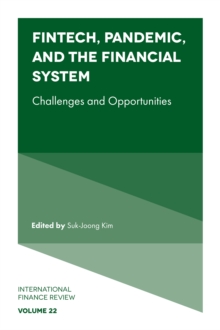
Economic Imbalances and Institutional Changes to the Euro and the European Union Hardback
Edited by Dr Rajmund (Technical University of Kosice, Slovakia) Mirdala, Professor Rosaria Rita (University of Naples Parthenope, Italy) Canale
Part of the International Finance Review series
Hardback
Description
This book offers a criticalperspective from which to observe evolution of the Euro Area and the EuropeanUnion in these times of growing economic and political conflict.
Keyimplications of design failures in the Euro Area (i.e. incorrect diagnostics ofthe public finance crisis, single monetary policy failure, heterogeneousmacroeconomic environment, asymmetry in macroeconomic policies, obstacles forpolicy coordination) and their contribution to the excessive external andinternal economic imbalances will be critically discussed from the economic,policy and institutional perspectives.
This critical insight is used to examineboth institutional asset and economic performance of Europe after the crisis,moving from the authors’ shared perspective that the crisis revealed the weakaspects of the whole architecture of the European Union. The economic crisis revealed theexistence of different forms of imbalances inside the Eurozone and highlightedthe flaws of the institutional architecture of economic policy in Europe.
Thegreater fragility of some countries in respect to others has triggered abackward process in which national interests have started to prevail over thoseof both the currency area and the entire European Union.
In turn, this hasfuelled a progressive decline in confidence in the European institutions and iscreating growing questions of interpretation both in terms of economic theoryand institutional asset.
This book focuses on these issues and on the degree oflegitimacy of the European institutions resulting therefrom.
It aims toinvestigate the nature and validity of the European integration processemphasizing limits and challenges arising from it.
Information
-
Out of stock
- Format:Hardback
- Pages:480 pages
- Publisher:Emerald Publishing Limited
- Publication Date:22/08/2017
- Category:
- ISBN:9781787145108
Information
-
Out of stock
- Format:Hardback
- Pages:480 pages
- Publisher:Emerald Publishing Limited
- Publication Date:22/08/2017
- Category:
- ISBN:9781787145108










